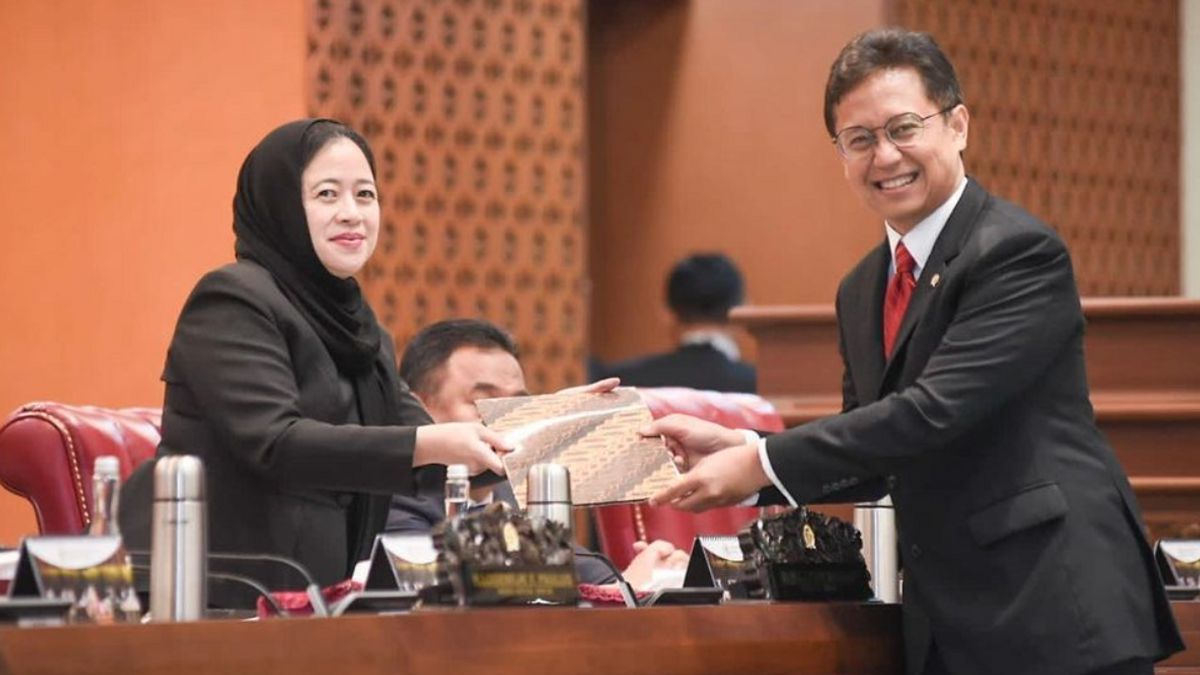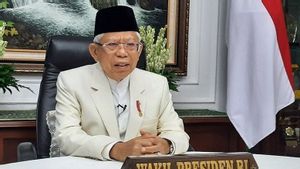JAKARTA - The Executive Board of the Indonesian Doctors Association (PB-IDI) together with four professional organizations took legal steps in the form of submitting a judicial review of the Health Law to the Constitutional Court (MK).
"We from IDI together with four professional organizations will prepare legal remedies as part of our duties as law-abiding communities to submit a judicial review," said Chairman of PB IDI Adib Khumaidi in a statement reported by ANTARA, Wednesday, July 12.
Adib assessed that the Health Law was legally flawed because it was prepared in a hurry and not transparent manner without paying attention to the aspirations of all groups, including the health profession.
In addition, said Adib, there are still many substances in the Health Law that have not met the health interests of the Indonesian people.
IDI also highlighted the revocation of nine old laws completed in the Omnibus Law within six months.
"We see this hastyity as a reflection that this regulation is accelerated. Are there then consequences because of other interests? We from professional groups do not understand such things," he said.
Adib mentioned the loss of mandatory spending in the Health Law as a state commitment at the central and regional government levels.
"That means, the people in a quantity do not get legal certainty in terms of health financing," he said.
Adib said the decision had consequences for the privatization of the commercial health sector through sources of loan funds from abroad.
"It is not impossible, through the privatization loan of the health sector, commercialization, and the health business, which will once again bring consequences for the health resilience of the Indonesian nation," he said.
On that basis, IDI together with the Indonesian National Nurses Association (PPNI), the Indonesian Midwives Association (IBI), the Indonesian Dental Association (PDGI), and the Indonesian Pharmacists Association (IAI), are preparing a judicial review of the Health Law.
Minister of Health (Menkes) Budi Gunadi Sadikin in the Plenary Meeting of the Health Bill, Tuesday (11/7), said the government had carried out at least 115 activities in the context of public participation in the Health Bill.
The Ministry of Health (Kemenkes) held 1,200 discussion agendas involving 27,000 participants from stakeholders to 6,011 inputs related to the Health Bill.
Regarding the reasons for the elimination of mandatory spending obligations in the Health Law, said the Minister of Health, based on the evaluation results that the health budget was not absorbed on target, and there was a tendency not to be transparent.
"The amount of spending or pending in health does not determine the quality of the outcome, namely the health level of the Indonesian people," he said.
اقرأ أيضا:
As a substitute for mandatory spending, the government regulates health spending not based on the large allocation of funds, but based on the commitment to government budget expenditures.
Minister of Health Budi appreciated the differences of opinion that occurred.
"I really appreciate differences of opinion, but convey it in a healthy way, and whenever I am open to those who want to communicate with me," he said.
"Let democracy happen with intelligence, open, without emotion, harsh words. Let people see which arguments are correct," he said.
The government and the DPR have officially agreed that the Draft Law (RUU) on Health is passed into law at the DPR Plenary Meeting for Session V for Session Year 2022-2023.
The majority of factions in the DPR approved the ratification of the Health Bill into law. Only the Democratic Party faction and the PKS faction rejected the ratification of the bill into law.
The English, Chinese, Japanese, Arabic, and French versions are automatically generated by the AI. So there may still be inaccuracies in translating, please always see Indonesian as our main language. (system supported by DigitalSiber.id)














